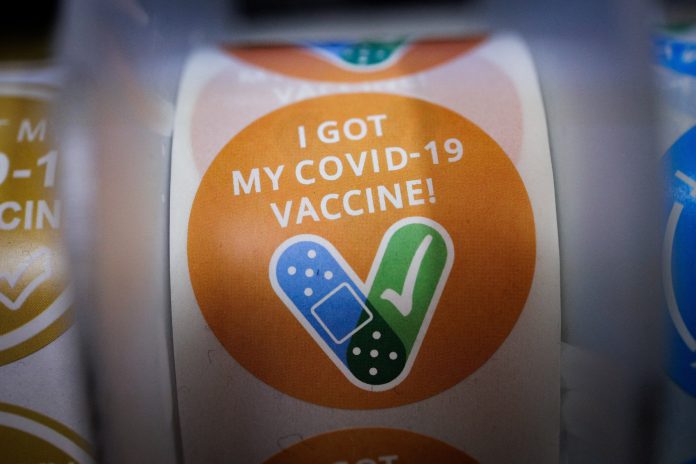Understanding the Connection: COVID Vaccines and Child Deaths
The world has been living through a pandemic like no other. COVID-19 changed our lives, introducing masks, social distancing, and a whirlwind of vaccine options to help us navigate through this crisis. It’s been a tough journey marked by uncertainty and fear, especially regarding the safety of vaccines. Recently, discussions have sparked around a troubling link between COVID vaccines and child deaths. As news reports circulate, it’s essential to unpack these claims and understand their implications. So, let’s break it down in a way that’s clear, engaging, and relatable.
The Recent Claims
Recently, articles in major news outlets revealed claims from Trump officials suggesting that COVID vaccines might be linked to deaths in children. The headlines of these reports caught many people’s attention. The idea that something meant to protect our health could be harming our kids is alarming. It’s a topic that raises more questions than answers.
For instance, if someone were to say, “Could the vaccine be causing harm instead of good?” it leads to panic for parents everywhere. Vaccines were developed quickly and rolled out to the public in what felt like a blink of an eye. Now, could they possibly be dangerous? It’s a scary thought.
In response, different authorities, including the FDA, are stepping in to review these claims. They’re analyzing reports to assess any potential risks associated with the vaccines. This scrutiny is vital, as ensuring the safety of our children is crucial for public health. However, let’s be realistic here—it’s also an emotional issue that brings up a lot of fears for parents around the world.
Understanding the Vaccine Landscape
To grasp the gravity of these claims, we need to understand what the vaccines do. Generally, vaccines work by teaching our immune systems to recognize and fight off viruses. With COVID, the vaccines from companies like Pfizer and Moderna were developed to protect us from severe illness, hospitalization, and death. The rollout was celebrated globally as a breakthrough in public health.
But vaccines can spark intense emotions. For some, they represent hope and a way back to normalcy. Others, however, have voiced concerns about their safety. This is especially true for parents who worry about their children’s health. It’s natural to feel protective and doubtful at the same time.
Remember a time when you were excited about something new? Maybe a toy, a game, or a new backpack for school? Now, imagine that excitement mixed with a little fear of something going wrong. That’s precisely the emotional cocktail surrounding vaccines today—hope mixed with anxiety.
The Risks vs. The Benefits
In discussions about COVID vaccines and child safety, it’s essential to weigh the potential risks against the benefits. Extensive studies have been conducted that show vaccines are overwhelmingly safe and effective. They have saved countless lives and prevented illness in millions.
However, the reports linking vaccines to child deaths cannot be ignored. Whenever a child passes away, especially amid a vaccination campaign, it raises eyebrows and questions. Was the vaccine involved? To what extent?
The risk of severe outcomes from COVID itself is also significant. Many children, though typically less affected, can still face serious consequences from the virus. This creates a difficult dilemma for parents and caregivers. On one hand, there’s trust placed in science and vaccines; on the other, there’s fear stemming from unprecedented situations.
Diving into the Data
The upcoming FDA review will detail the data they’ve collected regarding these alarming claims. As officials gather to discuss the link between vaccines and child deaths, a transparent examination is crucial. Parents and health professionals need clear answers. This situation emphasizes the importance of rigorous research and monitoring post-vaccine effects.
During all this turmoil, one fundamental truth stands out: the necessity of keeping communication open among scientists, healthcare providers, and the public. Misinformation can spread like wildfire, and that’s where accurate data comes in—bridging gaps and calming fears.
The Impact on Public Perception
As news spreads, it can shift public perception rapidly. Reports like these can lead to hesitation about vaccinations and might even influence policies. For instance, what if parents decide against vaccinating their children due to fears surrounding these claims? The implications of such choices would be vast.
Engagement with communities and providing educational resources will be key in addressing these emotions. This way, parents can make informed decisions based on science. It’s about ensuring everyone has access to trustworthy information—the kind that can guide choices without stoking unnecessary worry.
Personal Parent Perspectives
As a parent, navigating this landscape is understandably overwhelming. I remember when I had to make the decision for my kiddo to receive their vaccines. The anxiety mixed with the hope was palpable. I wanted to ensure protection against potential harm, but the doubts crept in—the ‘what ifs’ that no parent wants to face.
For many parents, those emotions run deep. We trust our healthcare providers and studies, but it’s hard not to question decisions that concern our children. It’s essential that we lean on one another during tough times, sharing experiences and seeking clarity together.
Conclusion: Why This Matters
The debates surrounding COVID vaccines and child deaths matter profoundly; they strike at the heart of public health and safety. What we need now is clarity, compassion, and open conversation. Parents have a responsibility to make informed choices, and authorities must provide the facts without confusion.
This situation teaches us valuable lessons about trust, communication, and the role of science in our lives. As we move forward, let’s focus on building a framework that allows for transparent discussions—ensuring that questions are addressed with honesty and respect.
In the end, every informed choice made by parents can lead to a safer community for all. It’s more than just vaccines; it’s about our kids and their future. Understanding the risks and benefits can empower us to make wise decisions for our loved ones. The journey might be daunting, but with open hearts and informed minds, we can navigate this landscape together.

